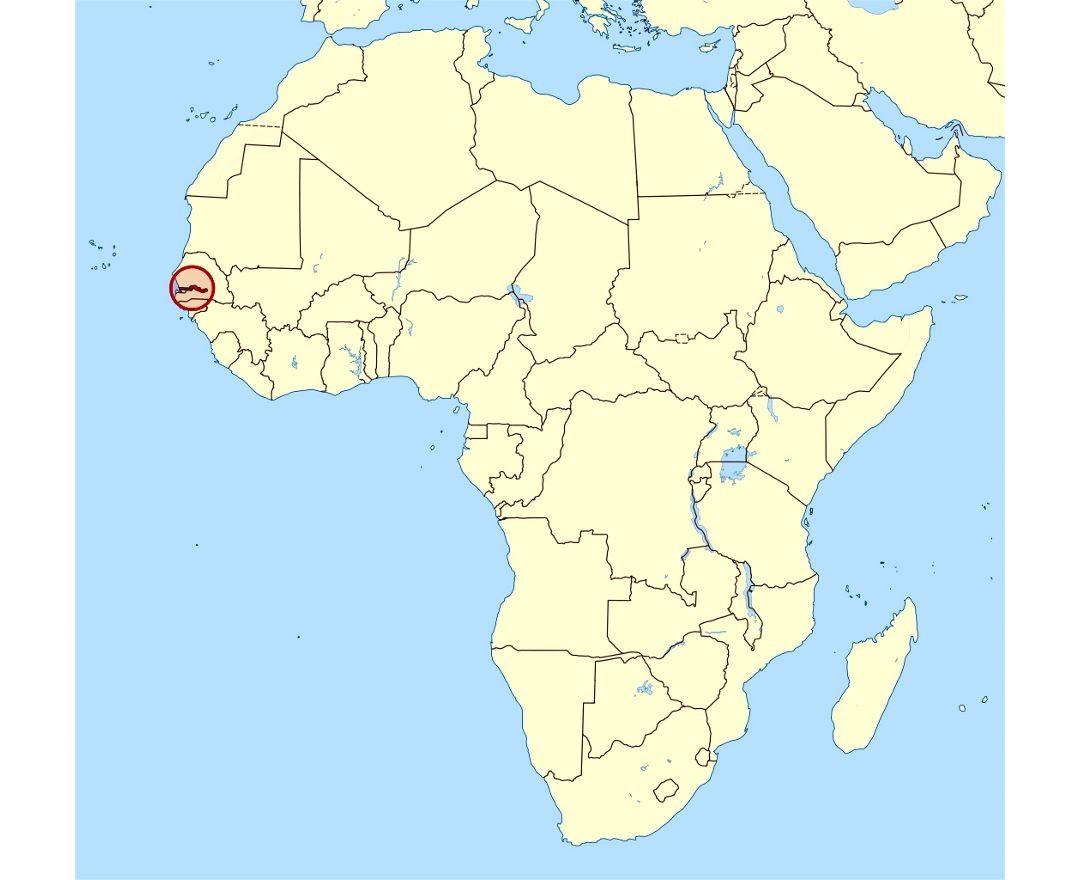Under The Knife
It takes you a minute to process what you’re reading.
A giant poster. Hoisted high on a makeshift billboard stand at the road’s edge. It’s coated in the soft layer of red dust blanketing everything here during the final days of the dry season.
First you see the image – a knife’s edge. Then you read the words:
“Don’t let the razorblade be our nation’s symbol.”
It’s 44-degrees Celsius in The Gambia when I see this. But it’s the heat of the politics in this tiny West African nation of 2.7M people that’s heating up the continent.

The flashpoint is the legality of FGM – Female Genital Mutilation – an excruciatingly painful, harmful and dangerous traditional practice involving the partial or total removal of the external female genitalia carried out on girls as young as a few days old to age 15.
A razorblade should not be a rite of passage for a child. And yet, globally, 2 million girls under age 5 each year are held down, their bodies cut, carved and stitched up in unnatural form. Around the world today, at least 230 million girls and women have survived FGM and live with its lasting physical and psychological effects.
Why? It’s internationally recognized as a human rights violation. No religious scripts prescribe the practice. FGM is a cultural tradition steeped in gender inequality to suppress a girl’s sexuality or ensure her chastity. Girls have the right to their whole bodies; to be free from gender-based violence. But that right is not guaranteed. FGM exists in many pockets around the world but is most prevalent in 31 countries – many in Africa, and some across the Middle East and Asia.
In 2015, FGM was banned in The Gambia. Recently, however, FGM has been pushed back into the spotlight and onto the legislative agenda after three elderly women became the first Gambians to be fined for performing FGM on eight babies.
The global community and civil society organizations are weighing in, encouraging the government to keep the law in place. Because depending on how the votes land, The Gambia would be the first country in the world to reverse the ban on FGM, leaving the door open for others to run through it. Hard-earned gains made over the past 30 years could be turned over with more progress likely erased in its wake: similar ban reversals expected in other nations, and reversals in child marriage laws and other forms of gender-based violence on the horizon.
While in The Gambia, I spoke with mothers whose voices trembled under the grief and pain of not being able to protect their girls from the cutting. Women shared how these violations to their bodies as children have shaped their reality as grown women: infections that never really go away, crushing menstrual pain, difficulties with simple bodily functions, life-threatening childbirths, stillbirth and infant deaths, and postpartum hemorrhaging.
UNICEF has been a staunch voice of advocacy and action on FGM around the world including in The Gambia where Nafisa Shafique and her incredible team are working around the clock: advocating against the potential repeal of the ban with lawmakers and government. Supporting brave local activists and survivors who are bringing women’s voices out of the home and into the streets. Raising awareness on the implications of FGM on bodies, communities and lives. Implementing social and behavioural change interventions in communities and schools.
Today, a girl is about one-third less likely to be subjected to FGM than she was 30 years ago. But progress is not easy nor a straight line.
The upcoming vote is incredibly consequential. I’m hoping we see children’s – and women’s – rights protected in its outcome.
With a margin that isn’t just razor-thin.
